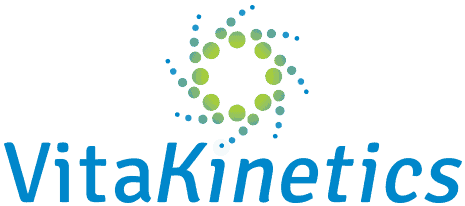The importance of Vitamin D cannot be ignored. Vitamin D is a natural conversion of blood cholesterol in the presence of UVB spectrum sunlight hitting the skin. Specifically related to intestinal permeability. Vitamin D3 has been shown to preserve epithelial barrier function in the presence of intestinal injury, be it Crohn’s disease or ethanol-induced or poor lifestyle choices. The free source of vitamin D3 is full sun exposure to a majority of your skin, without burning. Yet, during certain times of the year or even job requirements, it is not possible to get the needed skin exposure to produce adequate and therapeutic amounts. You can check your area for when the sun is above the 30 degrees altitude in order to provide UV B exposure for Vitamin D conversion. Spending five to ten minutes for fair skin during peak UV B exposure on a large portion of skin is the most effective and efficient. It’s important to gauge your skins response to avoid burning.
The medical term for treatment in the sun is called heliotherapy. Heliotherapy has a long history in medicine for treatment of many conditions. After the dawn of antibiotics however, the medical treatment of heliotherapy was mostly discontinued. Even during war times, most surgical procedures were performed outside in order to take advantage of sunlight. This was likely due to lack of artificial light sources at the time, and also created more variables for infection during surgery, yet it was still used. As recently as 1894, Tufts Medical Center had The Boston Floating Hospital for sick children. The experience was hoped to improve healing using fresh air and sunshine. In 1920s they began building an on-land hospital. In time, the floating hospital burned, no children were on board, and the use of heliotherapy lost focus in the hospital. Unfortunately, as modern medicine and modern technology has progressed, our use of sunshine on healing has fallen to the wayside. This is unfortunate because sunshine also has important impacts on our sleep cycle as will be discussed later.
If you are unable to get the needed sun exposure, then Vitamin D supplementation is a safe and maybe necessary option. A randomized double-blind placebo-controlled study in patients with Crohn’s disease found that 2000IU supplementation of D3 significantly increased blood levels and decreased intestinal permeability.
The effect of Vitamin D3 supplementation on pain and quality of life has also been evaluated. A recent study showed that supplementation of Vitamin D decreased pain and increased quality of life for women with chronic widespread pain.
Unlike Vitamin C which is water soluble, Vitamin D3 is a fat-soluble vitamin. Toxic levels, although may be a concern, are extremely rare and difficult to achieve. One case report of hypercalcemia with Vitamin D supplementation at over 40,000IU/day occurred. Vitamin D levels achieved by sun exposure does not result in Vitamin D toxicity. Vitamin D supplementation is generally well tolerated and excessive doses from sunlight exposure or dietary sources are highly improbable. If you are interested in reaching therapeutic blood levels (Vitamin D Council suggests ideal levels at 50 ng/ml) beyond what is described here for pain reduction and gut healing, then further testing is needed. Speak to your doctor or you can review home testing and optimal blood values here.
Although sunshine is the first choice and supplementation may be necessary, one may wonder if food sources of Vitamin D can improve serum levels. Although eating foods high in Vitamin D like mushrooms and sardines is helpful, it is difficult, if not impossible, to reach the above recommendations on food alone especially in the absence of UV B sun rays. Food sources for Vitamin D are D2 which is not the most active form for the body.
Remove. Replace. Restore.
Remove fear of the sun.
Replace with safe full spectrum sun exposure for natural Vitamin D3 for pain relief and improved sleep. Use supplementation to aid during recovery.
Restore intestinal integrity and reduce pain.
Eat Well. Move Well. Sleep Well. Connect Well. Supplement Well.
Protective effect of 1,25-dihydroxyvitamin D3 on ethanol-induced intestinal barrier injury both in vitro and in vivo.
Heliotherapy
Effects of vitamin D supplementation on intestinal permeability, cathelicidin and disease markers in Crohn’s disease: Results from a randomised double-blind placebo-controlled study
The effect of vitamin D supplementation on pain, quality of life, and nerve conduction studies in women with chronic widespread pain.
Herb Nutrient and Drug Interactions

